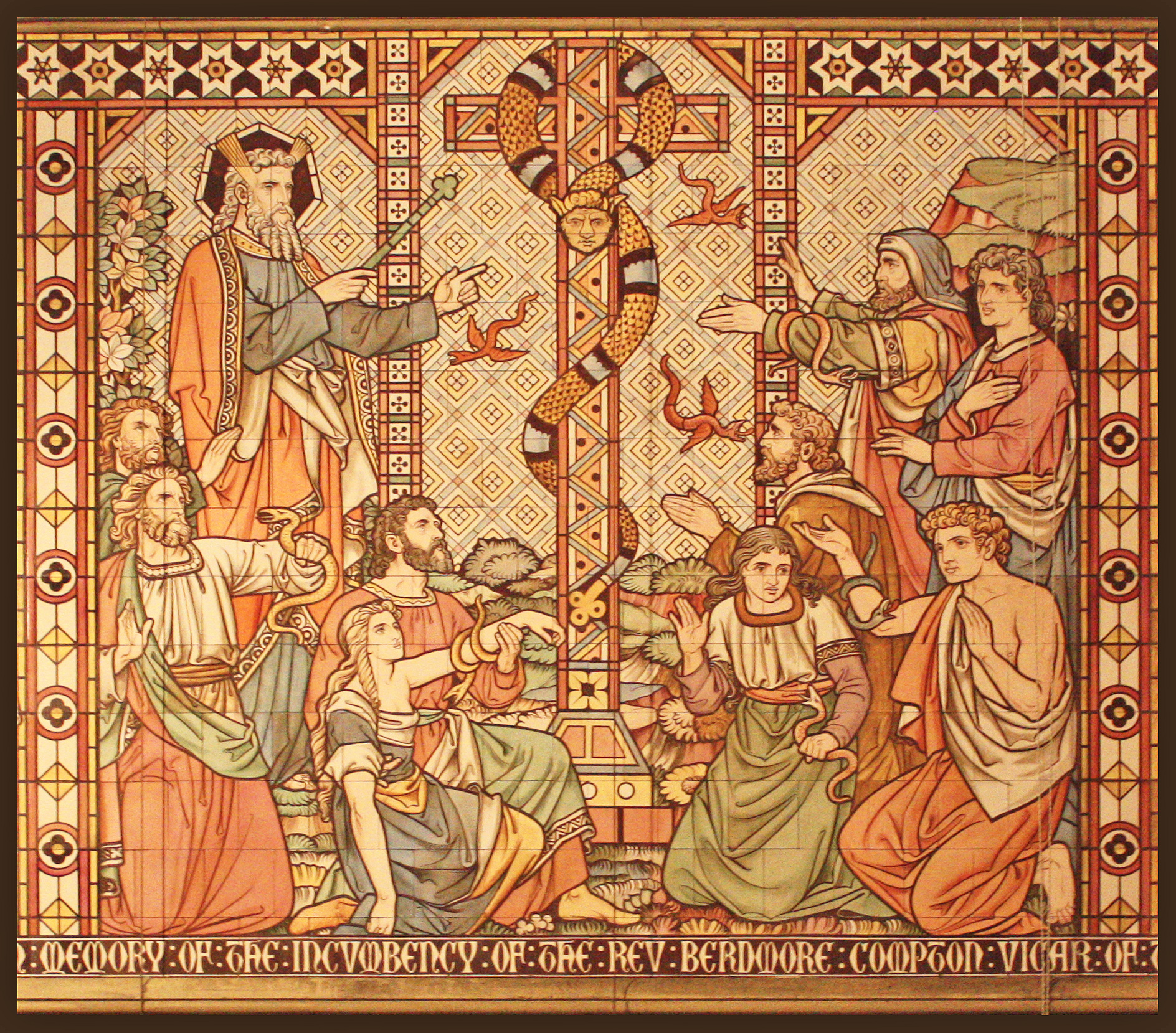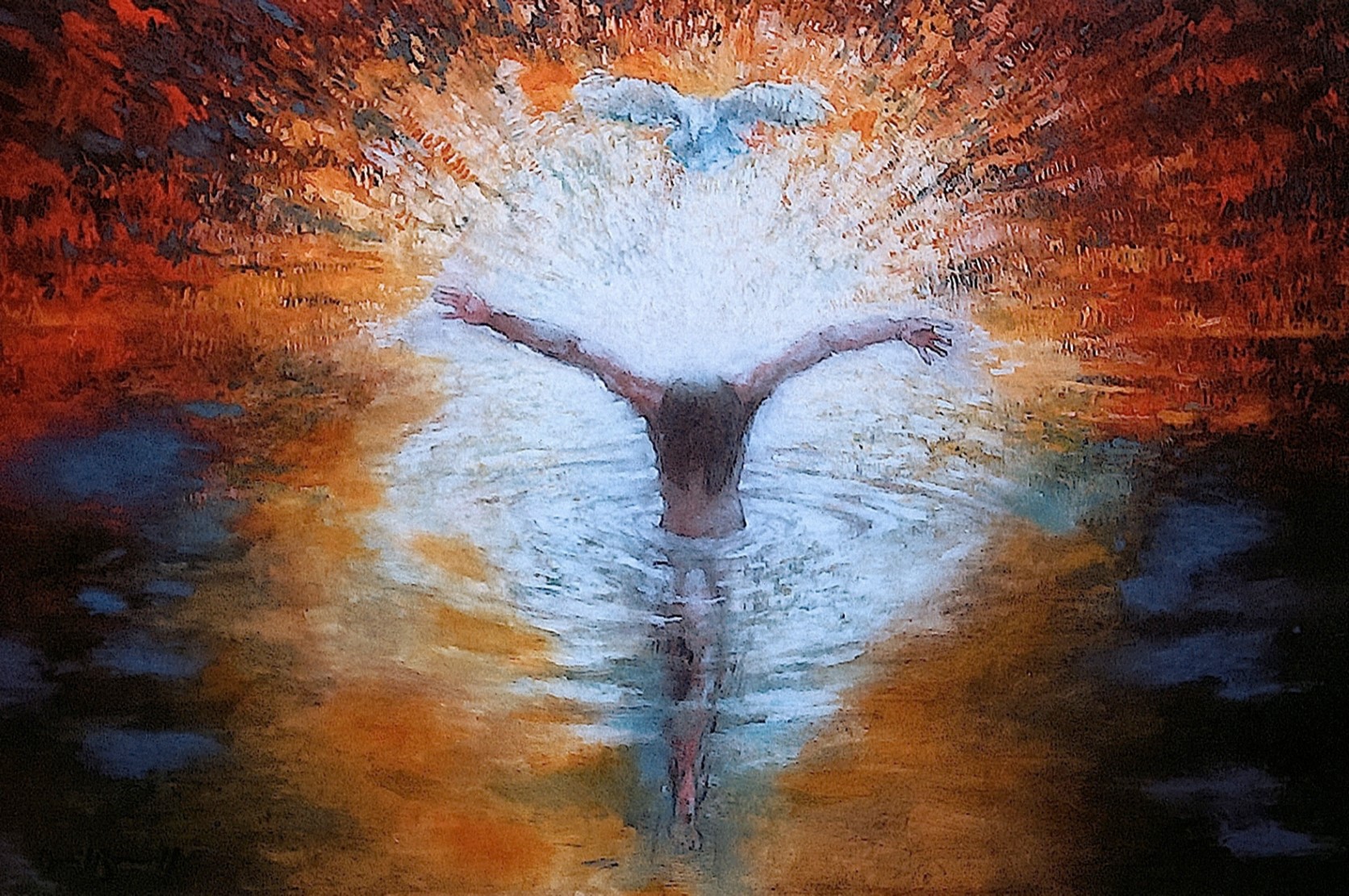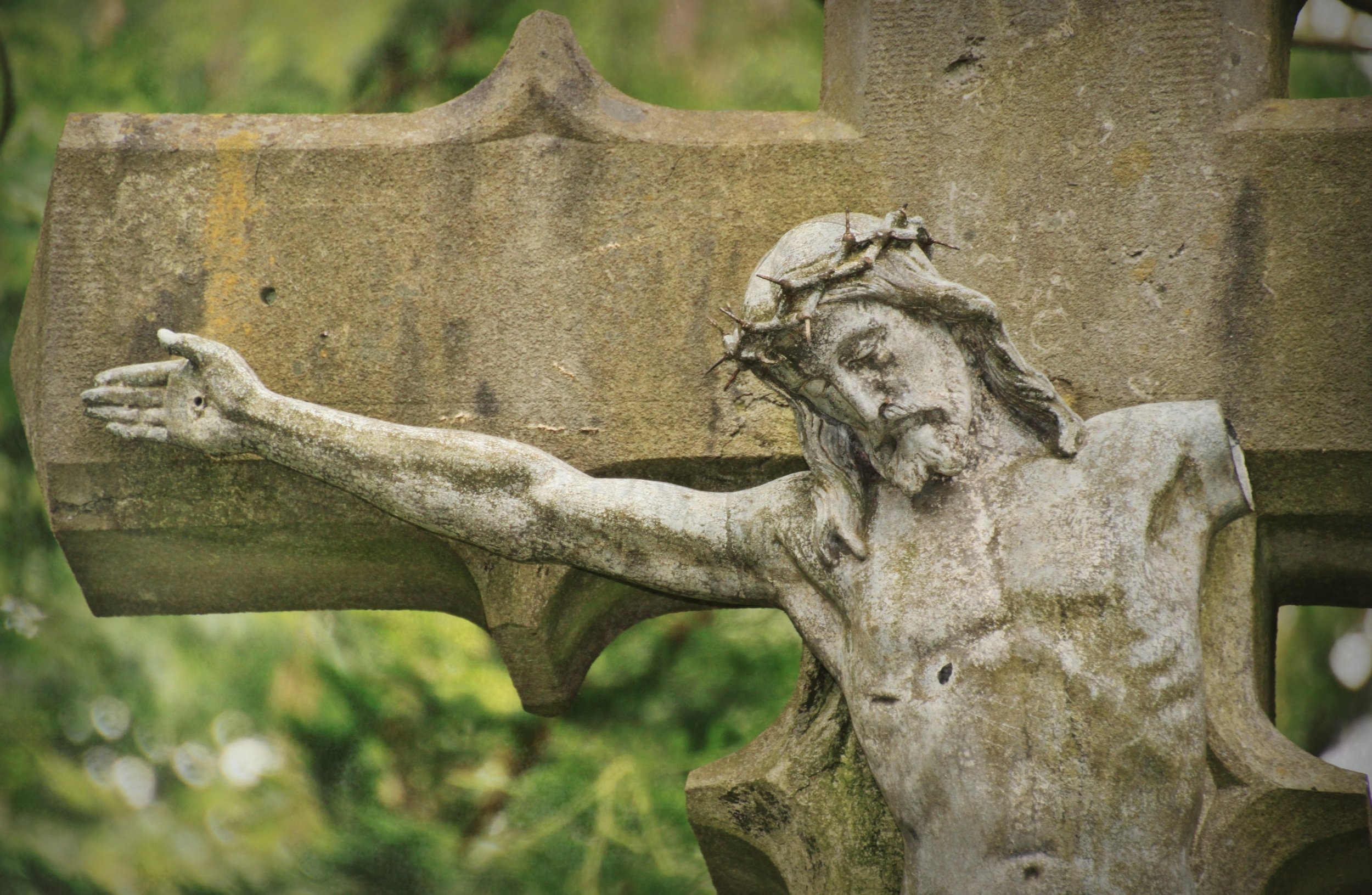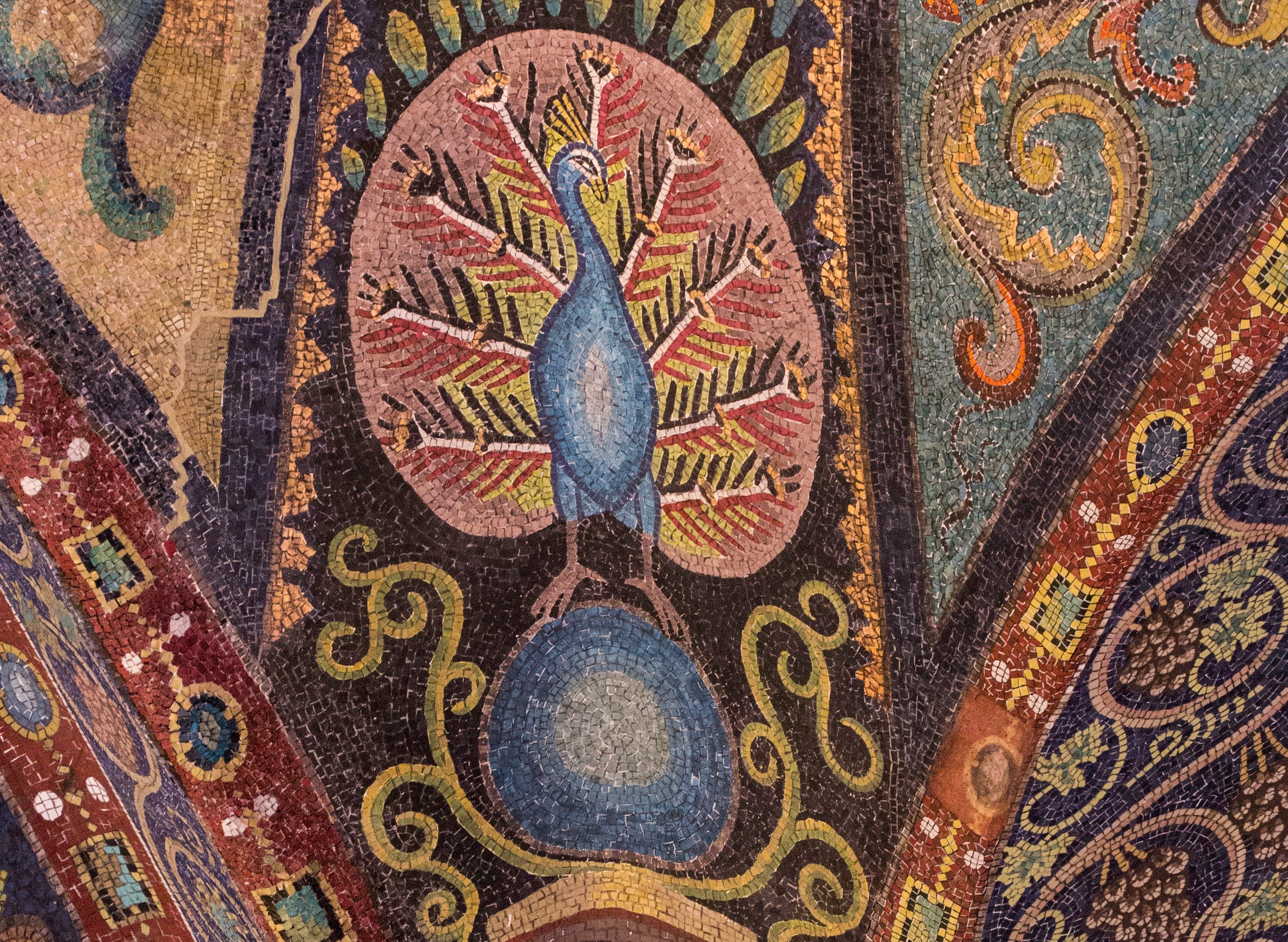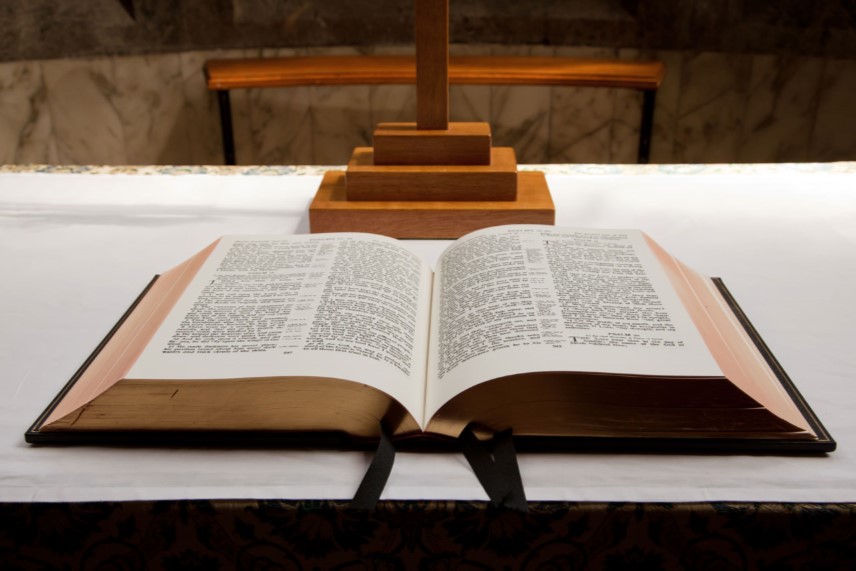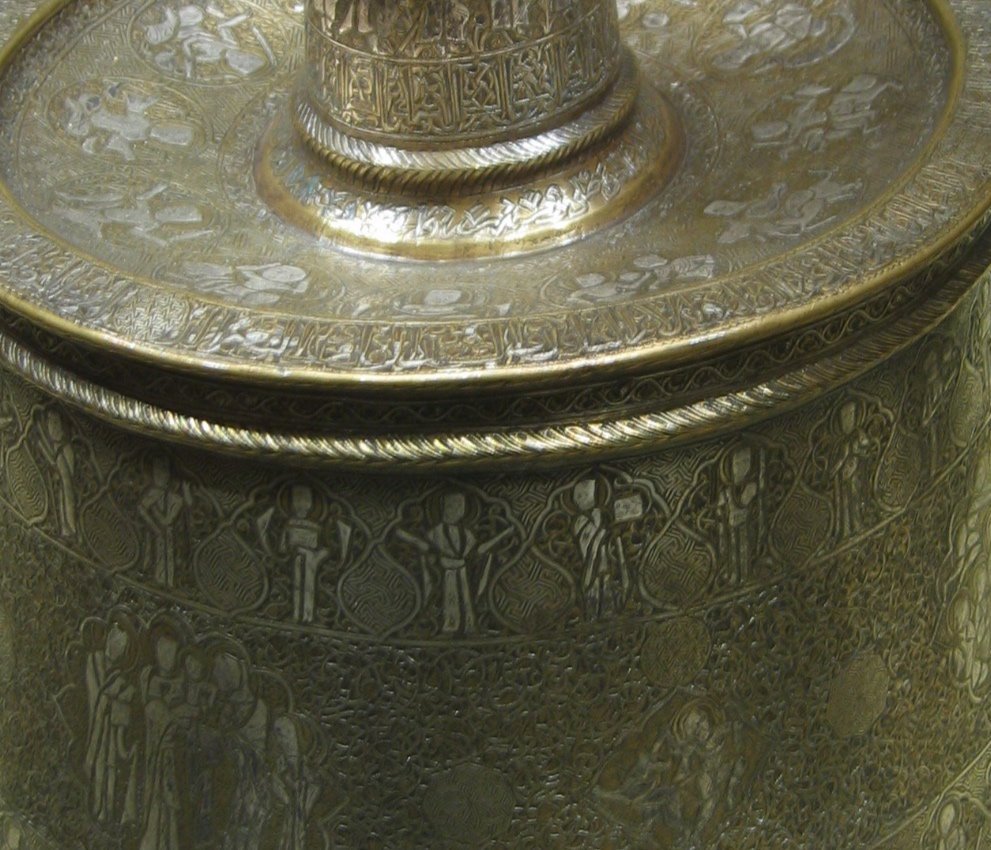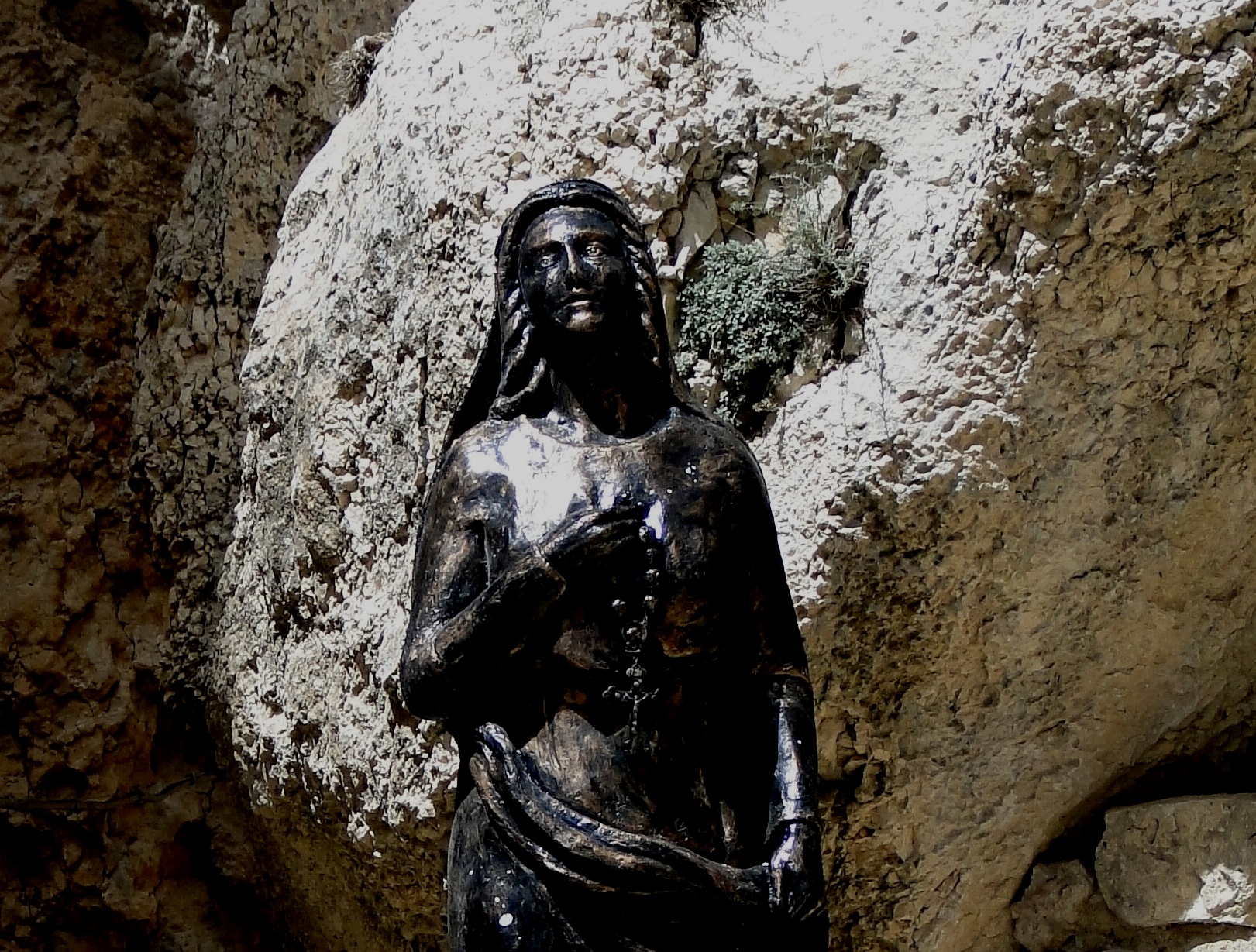Origins
Bible Studies, Messages, Papers on the Book of Genesis
Photograph: Plitvice Falls in Croatia. Photo credit: WallpapersB. Eden was the source of four rivers that diverged, which means that it was a higher elevation. Ezekiel called it a mountain (Ezk.28:13 - 14). Perhaps Plitvice Falls comes close to the beauty of Eden.
Below are messages, small group leader notes, and exegetical notes on the Book of Genesis.
Messages on Genesis
Genesis 1:1 - 2:25 Your Choices Shape Your Desires
Genesis 2:4 - 4:25 Human Beings Bearing the Image of God
Genesis 1:1 - 11:26 What Does God Value More? The Individual or the Social Order?
Genesis 1:1 - 22:18 Can We Trust This God?
Genesis 25 - 35 Three Types of Pain from the Story of Jacob
Small Group Leader Notes on Genesis
Genesis 1:1 - 2:3 God, Humanity, and the Original Creation
Genesis 2:4 - 25 Human Beings Bearing the Image of God
Genesis 2:8 - 17 The Tree of Life and the Tree of Knowledge of Good and Evil
Genesis 3:1 - 7 Temptation and the Fall into Corruption
Genesis 3:8 - 19 The Fall's Consequences; God's Redemption Begins
Genesis 3:20 - 24 God Covers Adam and Eve's Shame
Genesis 4:1 - 25 The Beginning of Hell on Earth
Genesis 4:1 - 16 Human Nature Can Be Corrupted Further
Genesis 4:16 - 25 Walling Yourself Off and Taking Others With You
Genesis 2:4 - 4:25 From Garden to City: Before and After the Fall
Genesis 5:1 - 6:8 Human Beings Bearing the Tarnished Image
Genesis 6:9 - 9:29 God, the Author, Judge, and Renewer of His Creation
Genesis 10:1 - 11:26 Humanity's Second Great Fall and the Second City
Genesis 1:1 - 11:26 Genesis in the Midst of Other Stories: The Character of God and the Value of Human Life
Genesis 11:27 - 13:4 God's Invites an Old Humanity to a New Eden
Genesis 13:5 - 14:24 God Helps Undo Our Jealousy and Be a True Brother
Genesis 13:5 - 18 God Helps Undo Our Jealousy
Genesis 14:1 - 24 God Helps Me Be My Brother's Keeper
Genesis 15:1 - 21 God Promises Life Out of Death in Abram's Body
Genesis 16:1 - 16 The Family's Next Fall into Sin; God's Redemption
Genesis 17:1 - 27 The Sign of God's Cleansing and Transforming Work
Genesis 18:1 - 15 God Brings Life Out of Death in Sarah's Body
Genesis 18:16 - 33 God Teaches His People to Pray
Genesis 19:1 - 38 The Result of Abraham's Prayer: God Rescues Lot
Genesis 20:1 - 18 God Redeems Abraham's Sin Again
Genesis 21:1 - 34 Is God Really the God of Life?
Genesis 22:1 - 24 The Death and Resurrection of the Beloved Son
Genesis 23:1 - 20 Sarah's Death and Abraham's Witness to Hope
Genesis 24:1 - 67 Rebekah, the Bride to Match Isaac
Genesis 25:1 - 26:35 God Extends His Blessing to the New Couple
Genesis 27:1 - 28:9 When We Prioritize Our Appetites Over God's Word
Genesis 28:10 - 22 God Turns Jacob's Flight into Holy Adventure
Genesis 29:1 - 30 The Holy Familiar and the Painful Reversal
Genesis 29:31 - 30:24 God Heals the Jealousy Between Two Sisters
Genesis 30:25 - 31:16 Jacob Learns to Let God Defend Him
Genesis 31:17 - 55 God Calls His People Back to the Garden Land and Back to Proper Boundaries
Genesis 32:1 - 32 God Wounds Jacob's Sin to Heal Him
Genesis 33:1 - 17 God Reconciles the Two Brothers
Genesis 33:18 - 34:31 Not a Happy Ending Yet: Jacob Endangers Dinah
Genesis 35:1 - 20 Not a Happy Ending Yet: Jacob's Homecoming
Genesis 37:1 - 36 God Begins to Undo the Favoritism in Jacob's Family - By Favoring the Favored
Genesis 38:1 - 30 Judah Tries to Exclude Tamar from God's Blessing
Genesis 39:1 - 23 God Develops a Partner for Blessing in Exile
Genesis 40:1 - 23 God Develops a Partner for Blessing in Prison
Genesis 41:1 - 57 God Develops a Partner for Blessing the World
Genesis 42:1 - 38 Joseph Incognito Provides for His Brothers
Genesis 43:1 - 34 A Brother's Keeper Sees the Face of God
Genesis 44:1 - 45:15 Joseph Discloses Himself to His Family
Genesis 45:16 - 47:26 Joseph Provides for the Whole World
Genesis 47:27 - 49:33 Jacob Prophecies Over His Children
Genesis 50:1 - 26 Joseph's Theology: God Redeems Evil and Brings Good Out of It
Notes and Essays on Genesis
The Creation Account in Genesis and Tolkien's Silmarillion
A short reflection assignment for Dr. Gary Deddo, for his class in Systematic Theology 1, to illustrate God’s providence and plan. The sheer number of parallels Tolkien’s creation story has to the biblical story is impressive. (1) Tolkien has one eternally existing God, Eru Iluvatar, as the biblical story has one God. (2) Iluvatar creates the angels through a verbal means, singing, as God creates everything by a verbal means, speaking. (3) Iluvatar desires goodness and harmony in the universe, as God clearly does by the order He builds into creation. (4) Iluvatar allows the angels freedom, as God implicitly does. This explains why (5) Iluvatar is not the author of evil, as God is not the author of evil. Rather, (6) that role falls to a disobedient angel named Melkor, the Satan figure. Finally, (7) Iluvatar commits himself to overcoming the dissonance introduced by Melkor, as God commits himself to overcoming the dissonance introduced by Satan.
Literary Structures in Genesis
Genesis has one introductory section (1:1 - 2:3) and ten genealogies (2:4; 5:1; 6:9; 10:1; 11:10; 11:27; 25:12; 25:19; 36:1; 37:2). This fits a pattern of God acting in a pattern of ten actions. Additionally, Genesis 1 - 11 is in the literary format of other Ancient Near Eastern creation myths, which accentuates the points of disagreement. Then, major chiastic structures are found in Genesis: the Noah story; the Abraham, Sarah, and Hagar story; the Jacob, Leah, and Rachel story; the Joseph and Judah story. These chiastic structures influence our perception of the characters and interpretation of these stories, so they are vital to consider when teaching and studying Genesis.
The Genesis Account and the Documentary Hypothesis
Text of a presentation. The Documentary Hypothesis is the idea that the Pentateuch is a political compromise between four different schools of thought in Israel, and is commonly taught in deconstruction circles. But critics raise four concerns. First, there’s no physical or historical evidence for these four schools of thought. Thus, the Documentary Hypothesis rises and falls on the literary arguments alone. Second, there is the Samaritan Pentateuch. If the “Elohim” school, which stands for the Northern Kingdom, already had a fully integrated Pentateuch, and not just an E document, how do we explain that? The Samaritan Pentateuch has literary features that fatally damage the Documentary Hypothesis. So does another manuscript family, the Masoretic text. Third, a damaging literary point: most of the literary analysis was done in ignorance of the actual properties of ancient literature at the time, and the literary analysis done primarily by Jewish rabbis and scholars. In fact, most of the foundational research on the Documentary Hypothesis comes from Germany, and it had undertones of German anti-Semitism from that period. And fourth, none of the literary criteria work in any consistent way. We examine specific examples.
The Creation Account and the Narrative of Science
Text of a presentation about how to interpret the diversity of life (evolution) and the origin of life. The presentation considers a range of mutually complementary options between the narratives of Genesis and science. The presentation encourages us to not go to the extremes: Neo-Darwinian evolutionists and “literal” six-day creationists.
God, Omnipotence, and Evil: God in Genesis
Text of a presentation about the three “omni’s”: omnipotence; omniscience; and omnibenevolence. If God is omnipotent and omniscient, can He do something that He didn’t think of before? Pitting omnipotence against omniscience is a logical problem. Either one has to take precedence. Since God is Triune, His character is loving, so His omnibenevolence comes first, and His omniscience serves His omnibenevolence, and His omnipotence serves those qualities.
Why do Christians think that “the angel of the Lord” is the pre-incarnate Jesus? Is that fair to the text? Or is it cleverness based on a conveniently worded text where the angel only represents God? A proper response must consider how God is at least binitarian, if not overtly trinitarian: transcendent, immanent, and the link between them. Thus, theophanies of God would culminate in Jesus. In addition, the human characters of Genesis reflect God’s desire to restore human partnership to what He intended, which would culminate in Jesus as well.
Slides to a presentation Mako Nagasawa gave to a class at Gordon-Conwell Theological Seminary in February 2024. Here is the English text of the treatise, which Ambrose wrote in 389. See video recording. Ambrose uses King Ahab as a case study of greed when he seized Naboth’s vineyard, in 1 Kings 21. This presentation relates to the Genesis creation story because Ambrose structures it around Genesis 1. He says that God gave all humans a shared dominion over the creation. In Christ, God gives us dominion, in principle, over sin. Covetousness, therefore, is a double problem. It interferes with the shared dominion over the creation, and it causes us to fail in exercising proper Christ-centered dominion over the sin in ourselves. Ambrose shows that Ahab became cruel, like the wild dogs that eventually fed off his dead, unburied body, as in 2 Peter 2:19 - 22. Ambrose also draws upon Matthew 6:19 - 24 because of how moths and rust share in our physical goods whereas God shares in the development of our moral goodness. Ambrose draws as well on Luke 12:13 - 34 because the greedy tear down barns/granaries and build bigger ones, finding more pleasure in the rising price of grain, not its widespread availability. A few slides refer to Ambrose’s understanding of the human being as a human becoming, Jesus’ work of atonement as a medical substitution healing human nature for us and inviting us to share in him, the pressing issue being human desires and not deservingness per se, and hell as the love of God but experienced by those who have become addicted to sin.
Whose Family? Which Union? Reflections on Scripture, Human Sexuality and God's Purposes
A paper summarizing the five Letters to a Gay Friend. This is an exegetical and pastoral paper examining biblical passages that are important in the discussion about what God’s vision for human sexuality is: Genesis 1 - 2; Leviticus 18 and 20; Matthew 19; Romans 1; 1 Corinthians 6 - 7; 1 Timothy 1. Ultimately, we have to look at the the nature of human desire in general, as a gift from God to move us towards extending ourselves towards Him and others. However, we are called to submit our desires to Jesus, who demonstrated the normative human emotions and desires.
Why Did God Choose a "Chosen People"? Why Not Just Skip Right to Jesus?
These two questions stand behind all of the questions that we might have about God’s relationship with the people of Israel as portrayed by the Old Testament. Why did God apparently favor Abraham and Sarah and their family? Why did God protect them by taking other human life, like in the Flood, Sodom and Gomorrah, the Egyptian firstborn, etc.?
When God took human life in these occasions, it was not to supposedly demonstrate "retributive justice," but rather to protect His human partners at the time, until Jesus came among the Israelites.
From Garden to Exile: A Thematic and Canonical Analysis of the Old Testament
There is a pattern in the canonical shape of the Old Testament literature, as divided into three sections: Pentateuch; Prophets; Writings. Each section begins with a garden or garden imagery. Each section ends with a state of exile yet hope for restoration. Biblical scholar John Sailhamer calls these ‘compositional seams’ linking and holding together books of the Bible. The arrangement of the books within each division reinforces the story and significance of garden to exile. Hope builds on itself.
Other Resources on Genesis
Robert Alter and Frank Kermode, The Literary Guide to the Bible. Harvard University Press | Amazon page, Sep 1, 1990. Very helpful insights for each book.
Robert Alter, The Art of Biblical Literature. Basic Books | Amazon page, 1981.
Robert Alter, The Art of Biblical Poetry. Basic Books | Amazon page, 1985.
Meir Sternberg, The Poetics of Biblical Narrative: Ideological Literature and the Drama of Reading. Indiana University Press | Amazon page, Aug 22, 1987.
Isaac M. Kikawada and Arthur Quinn, Before Abraham Was: The Unity of Genesis 1 - 11. Ignatius Press | Amazon page, Mar 1989.
Jon D. Levenson, The Death and Resurrection of the Beloved Son: The Transformation of Child Sacrifice in Judaism and Christianity. Yale University Press | Amazon page, Mar 1989.
Robert Alter, The World of Biblical Literature. Basic Books | Amazon page, Mar 17, 1992.
John H. Sailhamer, The Pentateuch as Narrative: A Biblical-Theological Commentary. Zondervan | Amazon page, Feb 21, 1995.
John H. Sailhamer, Introduction to Old Testament Theology: A Canonical Approach. Zondervan | Amazon page, Oct 14, 1999.
Duane Garrett, Rethinking Genesis: The Source and Authorship of the First Book of the Pentateuch. Mentor | Amazon page, Jan 1, 2001.
Paul Borgman, Genesis: The Story We Haven't Heard. InterVarsity Press | Amazon page, Aug 25, 2001.
J.P. Fokkelman, Narrative Art in Genesis: Specimens of Stylistic and Structural Analysis. Wipf and Stock Publishers | Amazon page, May 14, 2004.
Rikk Watts, Making Sense of Genesis 1. Stimulus Journal, Nov 2004. An excellent comparison between Genesis 1 and the creation myths of other Ancient Near Eastern cultures
John H. Sailhamer, The Meaning of the Pentateuch: Revelation, Composition and Interpretation. InterVarsity Press | Amazon page, Nov 15, 2009.
N.T. Wright, If Creation is Through Christ, Evolution is What You'd Expect. BioLogos, Apr 24, 2017. A short, excellent 4 minute reflection on Colossians 1 and Genesis 1
Rabbi Allen S. Maller, Aristotle Ruined Eve’s Genesis Equality. The Times of Israel, Oct 22, 2019.
Paul Kingsnorth, Humanity and Nature in Eastern Orthodox Christianity. Temenos Academy, Apr 4, 2025. A 52 minute video, lecture exploring the relationship between Christian faith and ecology. Kingsnorth gives a very touching and informed presentation of the original garden.
Helpful Practical Tools to Teach Genesis
Alastair Roberts, 40 Days of Exoduses. Alastair’s Adversaria. A very helpful collection of examples of how biblical storytelling repeats structures and plots.
Damon Young, The Wisdom of Gardens. Aeon, Jun 14, 2013. Gardens expand our thinking, console us in times of crisis, school us in emotional generosity, and show us that life goes on.
The Bible Project, The Book of Genesis, Overview Part 1. The Bible Project, May 19, 2014. Covers Genesis 1 - 11; a good explanation of the tree of knowledge of good and evil as the choice to trust God to define good/evil or not trust God.
The Bible Project, The Book of Genesis, Overview Part 2. The Bible Project, Jul 24, 2014. Covers Genesis 12 - 50.
Inspiring Philosophy, Genesis 6a: The Nephilim. Inspiring Philosophy, Dec 6, 2019. Argues that “the sons of God” were rulers who became tyrant-kings who became polygamous and took many wives. “The Nephilim” are also “mighty men” and not offspring of angels mating with human women. There is considerable literary and historical context to argue that the problem was polygamy, as men wanted to make a name for themselves, and Noah was unusual because he was monogamous, as were his sons.
The Bible Project, Tree of Life. The Bible Project, Feb 18, 2020. Stunning visual representation of Eden and the tree of life as a temple, offering God’s life, going through to the burning bush of Moses, Sinai, Zion, and eventually Jesus.
Henry Abramson, Genesis in Historical Perspective (Jewish History Lab). Henry Abramson, Oct 25, 2020. “A brief discussion of the Book of Genesis in the context of what we know about the history of the ancient world, focussing on the lives of the Patriarchs and Matriarchs. This lecture is also part of the course entitled Biblical Jewish History: From Abraham to Bar Kochba.”
David Graeber and David Wendrow, The Dawn of Everything: A New History of Humanity. Penguin Books, Oct 19, 2021. This is quite a long read, but stunning in its implications about how morally, politically, and culturally sophisticated early humans were. For a much shorter video featuring how ancient peoples handled wealth redistribution, ecology and sustainable life, and other aspects of life that we wrestle with today, see Anand Ghiradharadas, Human History Gets A Rewrite. The Mehdi Hasan Show, Nov 5, 2021. Journalist Anand Ghiradhardas interviews David Wendrow for the first time since the publication of the book, in a very enlightening discussion. See review by Giulio Ongaro, David Graeber Knew Ordinary People Could Remake the World. Jacobin Magazine, Oct 22, 2021. Ongaro says,
“The Dawn of Everything intellectually dwarfs the likes of Steven Pinker, Jared Diamond, or Francis Fukuyama (and Yuval Noah Harari too). Whenever nonspecialists try their hands at human history, they inevitably end up reproducing the same old myths we have grown up with. Take Pinker: for all his talk about scientific progress, his books might as well have been written at the times of Hobbes, in the seventeenth century, when none of the evidence unearthed recently was available. Graeber and Wengrow casually expose these popular authors’ startling incompetence at handling the anthropological record.”
National Geographic, Buried Secrets of the Bible with Albert Lin: Sodom & Gomorrah (Full Episode). National Geographic, Dec 14, 2023.
Irving Finkel, The Ark Before Noah: A Great Adventure. The Institute for the Study of Ancient Cultures, Jul 20, 2016. Finkel’s lecture is delightful, humorous, and worth watching to the end for his remarks about the Babylonian version. However, Finkel does not attend to the literary differences. For that, see Religion for Breakfast, The Pre-Biblical Origins of Noah’s Flood. Religion for Breakfast, Jul 25, 2024. Compares the Sumerian Flood Story, the Atrahasis Epic, the Gilgamesh Epic, and the Noah story.
The Art of Storytelling, Rings Of Power Isn't Fantasy. The Art of Storytelling, Sep 13, 2024. The argument is that Amazon’s Rings of Power is trying to make more “factual” things that were shrouded in mystery by Tolkien in The Lord of the Rings. The effect is to remove a sense of mystery from a mythical past that is unknowable to a degree. Thus, readers no longer have to use their imagination. This is an important consideration when reading Genesis 1 - 11. The narration is terse and dense, which leaves the past shrouded in mystery to an unusual degree, compared to other narrations of biblical literature. Perhaps we as readers are meant to use our imaginations, to a degree.




